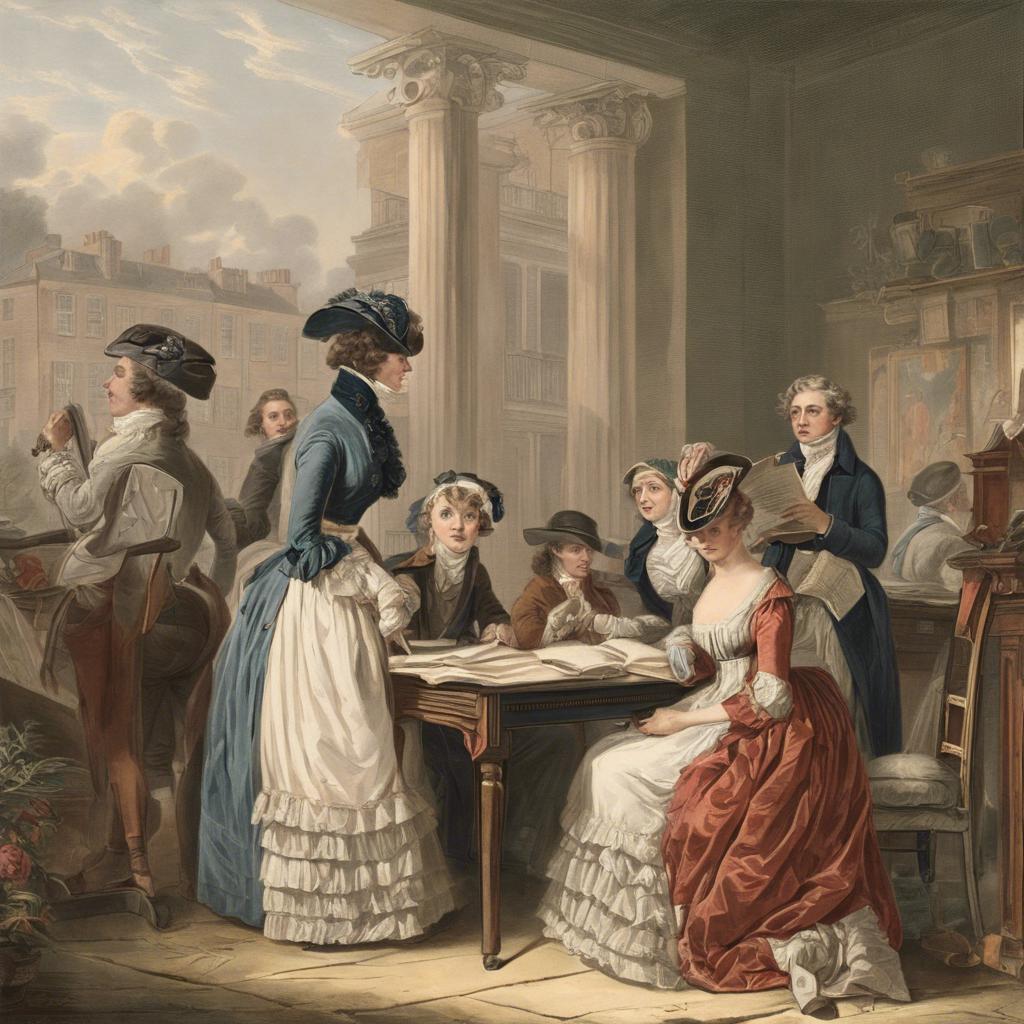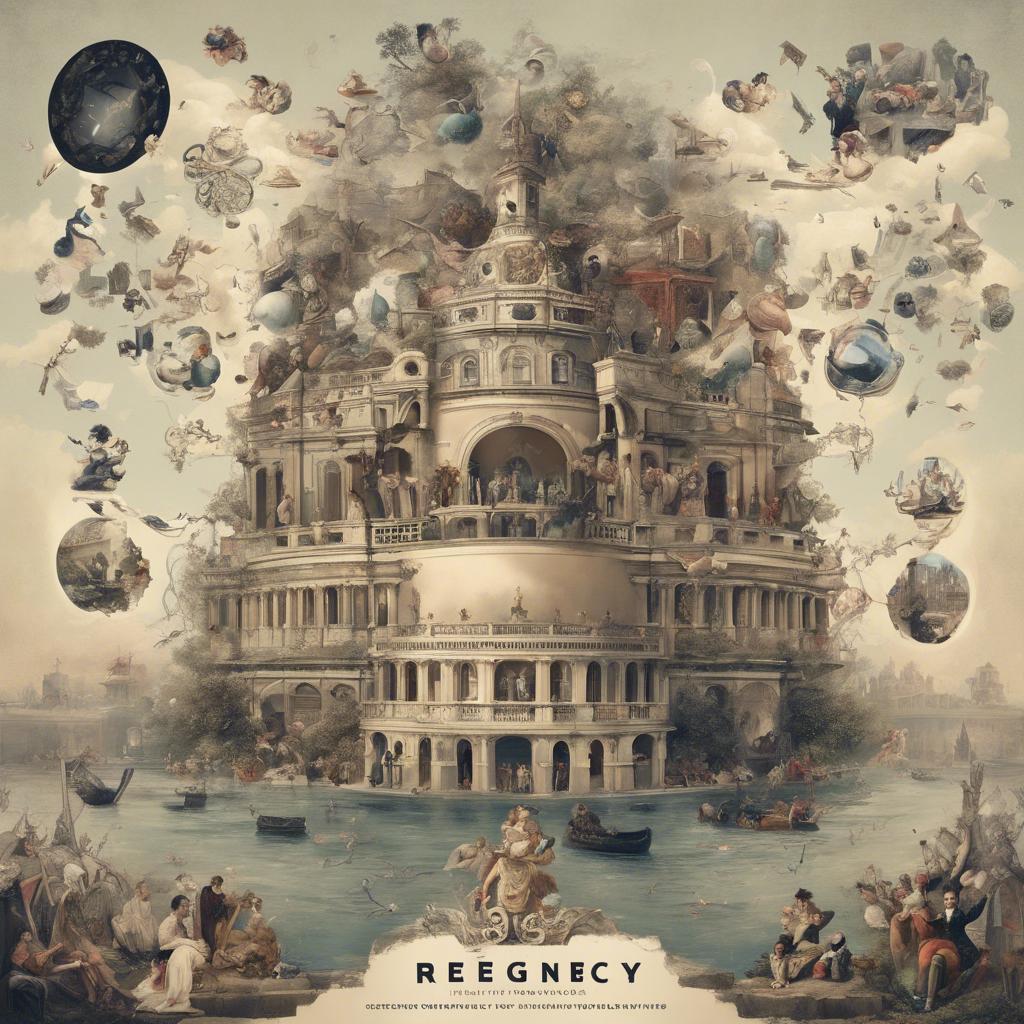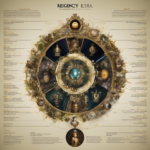During the Regency era in England, the use and evolution of the English language took on a unique and intriguing character. The period, spanning from 1811 to 1820, saw significant shifts in language usage, influenced by cultural, social, and political happenings of the time. In this article, we will explore the nuances of Regency era English language, shedding light on how language shaped and reflected the society of the era. From fashionable slang to formal correspondence, the language of the Regency era offers a window into a captivating moment in linguistic history.
Step Into the World of Cheryl Bolen
Dive into the enchanting stories of love, intrigue, and elegance set in the Regency Era. Cheryl Bolen's novels offer timeless romance and captivating tales that will leave you wanting more.
Explore Cheryl Bolen's Books Now
Life During the Regency Era: The Evolution of English Language
During the Regency Era, the English language underwent significant changes and evolution. This period, lasting from 1811 to 1820, was marked by cultural, social, and linguistic developments that shaped the language we use today.
One of the key features of Regency Era English was the influence of French vocabulary and syntax. This was due to the close ties between England and France during this time, as well as the popularity of French culture and fashion among the English aristocracy. As a result, many French words and phrases became integrated into everyday English speech, adding a touch of sophistication and elegance to the language.
Moreover, the Regency Era saw the rise of new slang and colloquialisms, reflecting the changing social dynamics and attitudes of the time. Words like “dandy,” “bluestocking,” and “rake” gained popularity, reflecting the fashion, status, and character traits valued in Regency society. These terms not only enriched the English language but also provided insights into the culture and values of the era.
Key Characteristics of Regency Era English Language
The English language during the Regency Era was characterized by its eloquence and refinement, reflecting the sophistication of the upper class during this time period. Some include:
- Elevated Vocabulary: The language used during the Regency Era was rich in vocabulary, with a focus on elevated and formal words.
- Poetic Expressions: The use of poetic expressions and literary devices was common in Regency Era English, adding a sense of elegance to communication.
- Precision in Speech: Clear enunciation and precise language were valued, with an emphasis on proper grammar and pronunciation.
Furthermore, the Regency Era saw the rise of novelists such as Jane Austen, whose works exemplified the language of the time. Austen’s writing style was known for its wit, irony, and social commentary, all of which contributed to the development of Regency Era English language.
| Example: | “It is a truth universally acknowledged, that a single man in possession of a good fortune, must be in want of a wife.” – Jane Austen, Pride and Prejudice |
the language of the Regency Era was marked by its elegance, precision, and literary flair. It was a language that reflected the manners and customs of the time, capturing the essence of a society defined by its sophistication and refinement.
The Influence of Regency Era Literature on English Language
During the Regency Era, literature played a significant role in shaping the English language. Writers such as Jane Austen and Lord Byron not only entertained audiences but also influenced the way people spoke and wrote. Their works introduced new words, expressions, and styles that became a part of everyday language.
Regency era literature contributed to the development of the English language in the following ways:
- Introduction of new words: Authors like Jane Austen coined new words or gave existing words new meanings, adding richness to the language.
- Evolution of grammar and syntax: Writers experimented with sentence structures and grammar rules, leading to changes in the way English was written.
- Influence on colloquial language: The dialogue in novels reflected the language spoken during the Regency Era, influencing informal communication among people.
| Writer | Contribution |
|---|---|
| Jane Austen | Introduced new words and expressions |
| Lord Byron | Experimented with poetic forms and language |
Exploring the Etiquette and Politeness in Regency Era English Language
During the Regency Era in England, language and communication played a crucial role in the society’s etiquette and politeness. The way people spoke and interacted with each other reflected their social status, education, and upbringing. Politeness was highly valued, and there were specific rules and conventions to follow in order to maintain a sense of decorum.
Language Politeness:
In Regency Era England, it was essential to use polite language when speaking to others, especially those of higher social standing. This included addressing people with proper titles and using formal expressions of respect. Insults, vulgar language, or speaking out of turn were considered highly inappropriate and could lead to social ostracism.
Etiquette in Conversation:
Conversations during the Regency Era were a delicate dance of wit, charm, and diplomacy. It was important to show interest in others, listen attentively, and avoid controversial topics. Gossip was common but had to be handled discreetly. Interrupting someone while they were speaking or speaking too loudly was considered impolite.
Closing Remarks
the Regency era saw a shift in the English language, with the influence of various cultural and societal factors shaping its development. From the refined and eloquent language of the elite to the slang and colloquialisms of the lower classes, the diverse linguistic landscape of the era reflects the complexities of Regency society. As we continue to study and appreciate this rich period in history, let us also remember the power of language in shaping our understanding of the past. Let us strive to preserve and honor the nuances of Regency English, as we continue to uncover the hidden gems of our linguistic heritage.


